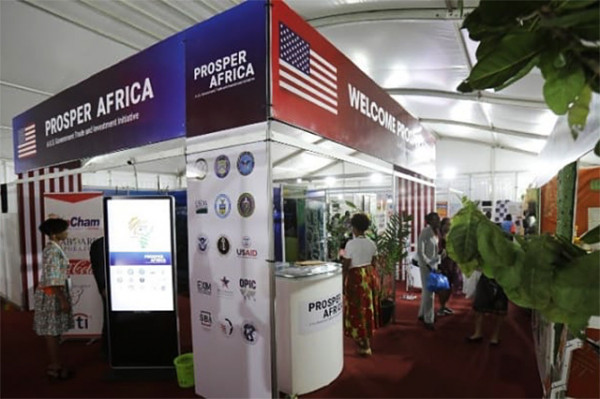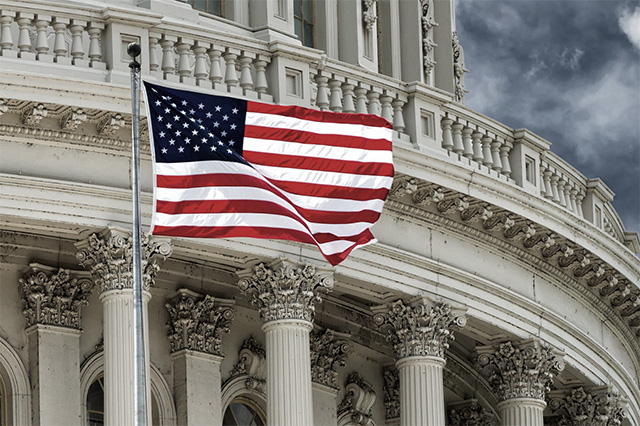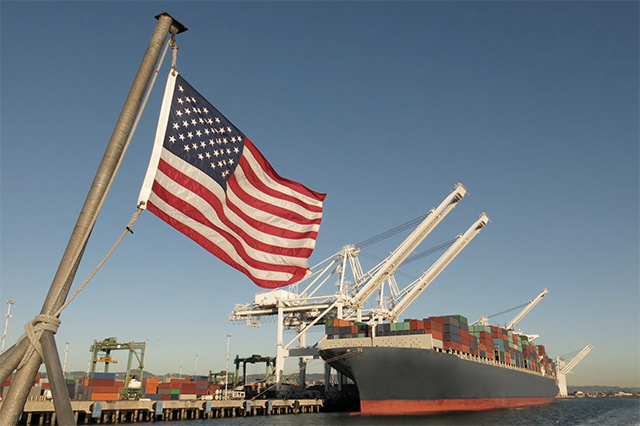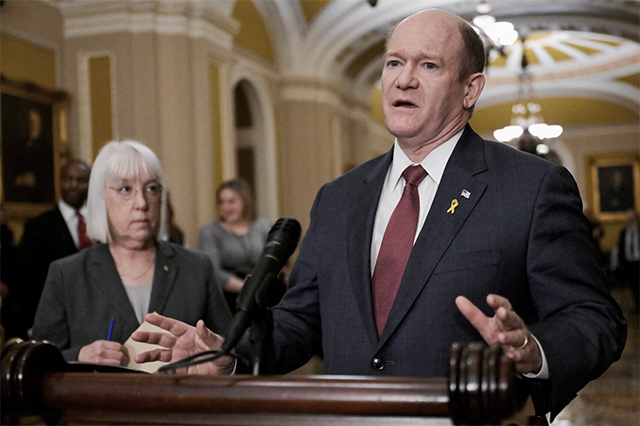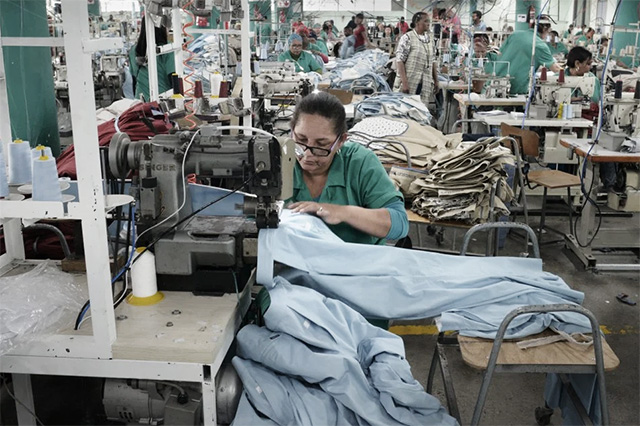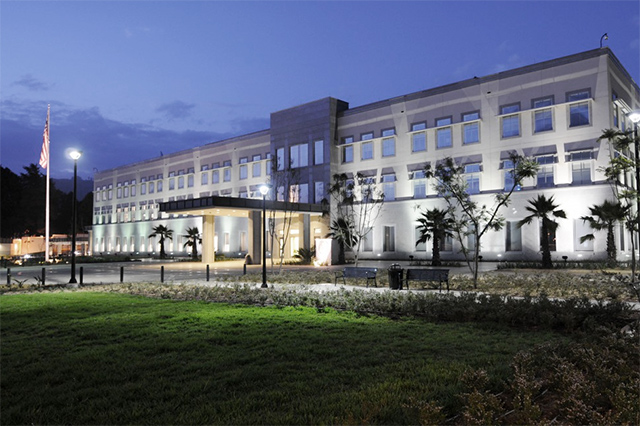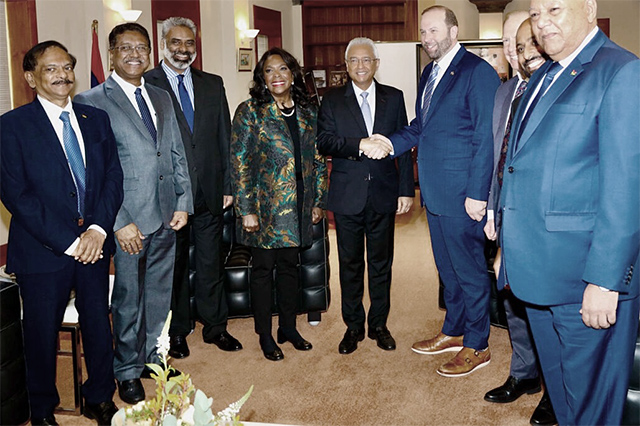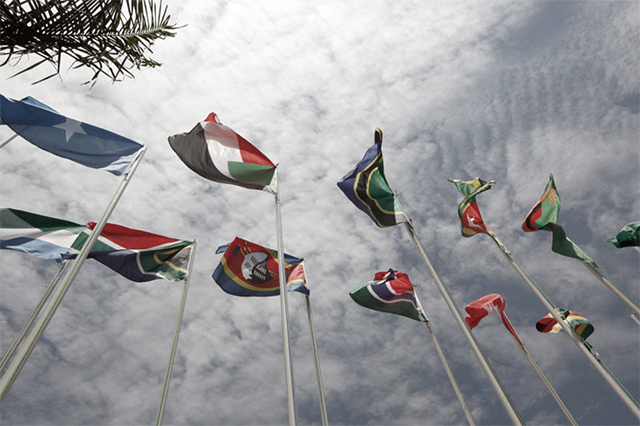Opinion: A bipartisan legacy of Africa trade worth remembering
In a White House ceremony twenty years ago this week, former U.S. President Bill Clinton signed into law the African Growth and Opportunity Act.
While AGOA hasn’t met all of its lofty goals, this trade legislation has helped lift many Africans out of poverty.
Today, with the global economy bordering on coronavirus-sparked turmoil and African economies bracing for great damage, it’s worth considering AGOA’s past and future, and celebrating the bipartisan collaboration that made this landmark initiative possible.
A small, bipartisan group in the House of Representatives devised and drove AGOA. They were liberals and conservatives, including Ed Royce, Jim McDermott, Bill Archer, Charley Rangel, Phil Crane, and Don Payne, who forged a comradery over the several years it took to succeed.
None had much of an electoral incentive to do the laborious and challenging work of passing meaningful legislation. If anything, they faced labor union opposition or constituent hostility about why they were working on Africa.
These lawmakers instead were motivated by a humanitarian concern and a sense that Africa would never develop if it remained so greatly marginalized from world trade, that the continent needed trade at least as much as aid, and that many African countries had potential to become important trading partners with the United States. They also felt that the world’s wealthiest economy could afford to give a leg up to the world’s poorest continent.
AGOA is a preferential trade program. It grants 6,400 African products duty-free access to the U.S. market, only expecting that the producing country honors basic criteria, including rule of law and governance standards. The AGOA approach reflected the fact that African agricultural-based economies were simply not ready to enter into negotiated free-trade agreements with the most advanced economy in the world.
AGOA has managed to economically uplift tens of thousands of Africans, if not more, providing many with their first formal sector job. Several U.S. retailers have used AGOA to source apparel from Ethiopia, Tanzania, Madagascar, and elsewhere. South Africa exports BMW autos to the U.S. under AGOA, showing that the continent does have world-class manufacturing ability.
Yet Africa remains a very small U.S. partner, with two-way trade levels only starting to stabilize at around a modest $40 billion after falling precipitously with the 2007-08 global financial crisis. And Africa’s role in world trade has remained stagnant, at around only 2%.
Looking back, AGOA supporters underestimated the challenges of boosting international trade and investment on the continent. Poor infrastructure, high shipping costs, and lax rule of law continue to stifle commerce. While some African countries have benefited substantially from AGOA, many others have not. Yet their faith in Africa’s potential has been borne out by impressive economic growth in some countries, including Ethiopia, while a young generation of technology-savvy African entrepreneurs is driving the continent forward.
AGOA also sparked a raft of initiatives through successive administrations that support market reform and U.S. commercial interests in Africa. The Millennium Challenge Corporation prioritizes U.S. assistance for countries strengthening the rule of law and creating supportive commercial climates.
The Trump administration has followed suit with “Prosper Africa” to bolster U.S. commercial activity on the continent. Most encouraging, African countries have launched an Africa Continental Free Trade Area to lower their own trade barriers.
So what’s next? The Trump administration would like to move beyond AGOA.
Earlier this year, it initiated free trade negotiations with Kenya, in which it will press U.S. interests on tariff rates, intellectual property, and food safety standards. Administration officials note that AGOA includes language aspiring to free-trade agreements and that preferential trade programs are not meant to be permanent. Winning trade deal concessions from Kenya and others is certainly harder when you already grant generous market access through AGOA.
Yet we should proceed with caution. Entering one or even several free trade agreements with African states would not equal the continent-wide market access of AGOA. Picking a few trade deal winners would stress commercial and political relations with dozens of Africa countries at a time when China and many other countries are courting them. Meanwhile, the uncertainty about whether Congress will extend AGOA beyond its 2025 expiration reportedly deters some investors from betting on Africa.
The coronavirus pandemic raises the stakes. The World Bank projects that African economies will shrink by 5% this year. Angola and Nigeria are suffering a double whammy, as world energy markets collapse. Emergent African industries will lose if global supply lines shorten. Tourism has collapsed.
All this will have devastating human consequences. Maybe AGOA’s market-based development approach is more relevant than ever, and the program should be expanded, adding certain omitted agricultural items, rather than jettisoned?
Africa needs more friends in Congress like it had two decades ago. Perhaps AGOA has come up short in some ways, but it has done much good and no harm.
And while it has improved the lives of Africans, advanced U.S. interests on the continent, not unimportantly, it showed that a diverse array of U.S. legislators could work successfully for a good cause and little credit. That experience alone is worth reflecting upon during our troubled times.
- Tom Sheehy is the principal of Quinella Global, a Washington, D.C.-based public policy consulting company. From 1997-2018, he served on the staff of the Foreign Affairs Committee in the U.S. House of Representatives, the last six years as its staff director.


